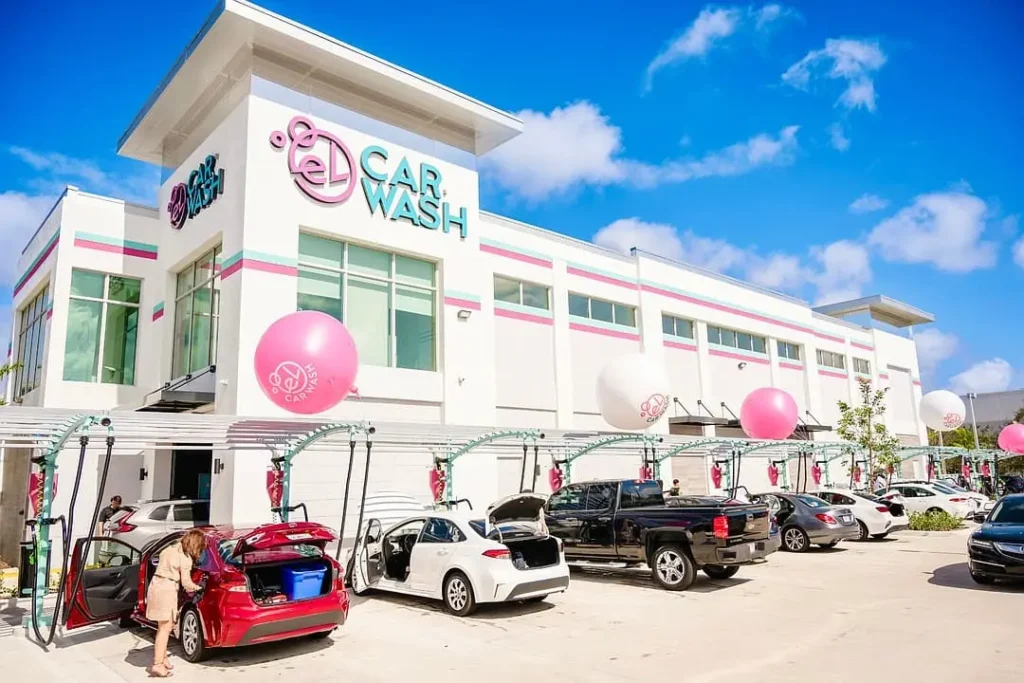Introduction
The One Big Beautiful Bill Act (OBBB), signed into law on July 4, 2025, is shaking up the tax landscape for commercial property owners. It builds on the 2017 Tax Cuts and Jobs Act (TCJA), keeping some provisions, tweaking others, and introducing new ones. If you own commercial real estate, you’re probably wondering: what’s changed, what’s stayed the same, and what should I do next?
This blog breaks it down in plain English, comparing OBBB vs TCJA, with a focus on real-estate tax comparison for commercial property owners.
Expired vs Extended vs New Provisions
The OBBB either extends, modifies, or introduces tax provisions that impact commercial property owners. Below is a side-by-side comparison of how these stack up against the TCJA.
| Provision | TCJA (2017) | OBBB (2025) |
| Bonus Depreciation | 100% bonus depreciation for qualified property, phased down to 40% by 2025 | Permanently reinstates 100% bonus depreciation for property placed in service after Jan 19, 2025 |
| SALT Deduction Cap | Capped at $10,000 for individuals | Temporarily raised to $40,000 (2025-2029), phases out above $500,000 AGI |
| Qualified Business Income (QBI) | 20% deduction for pass-through entities, set to expire in 2025 | Permanently extends 20% QBI deduction, with minor tweaks to phase-outs |
| 1031 Exchanges | Allowed tax deferral on like-kind property exchanges | Unchanged, continues to allow tax deferral |
| Opportunity Zones | Deferred capital gains for investments in QOFs, set to expire | Permanently extends with updated eligibility rules |
| Low-Income Housing Tax Credit | Available with certain limitations | Permanent 12% allocation increase starting 2026 |
| Section 179D (Energy Deduction) | Deduction for energy-efficient commercial buildings | Continues with no major changes |
| New: Qualified Production Property | Not applicable | New 100% first-year depreciation for manufacturing buildings (2025-2030) |
Statistical Insight: The OBBB is projected to reduce federal tax revenue by $5 trillion over the next decade, with real estate provisions like bonus depreciation and QBI contributing significantly to this cost (Tax Foundation, Jul 5, 2025).
Biggest Wins (Bonus Depreciation, SALT Relief)
100 Percent Bonus Depreciation Real Estate
The return of 100% bonus depreciation is a game-changer for commercial property owners. Under the TCJA, this provision allowed owners to deduct the full cost of qualified property like interior improvements or equipment in the first year. However, it was phasing out, dropping to 40% in 2025 and set to end by 2027. The OBBB reverses this, making 100% bonus depreciation permanent for property placed in service after January 19, 2025.
Why does this matter? A cost-segregation study real estate can break down a property’s components (e.g., HVAC, lighting) to identify assets eligible for bonus depreciation–eligible property. This maximizes your upfront deductions, boosting cash flow.

SALT Deduction Relief
The TCJA capped state and local tax (SALT) deductions at $10,000, hitting property owners in high-tax states like California and New York hard. The OBBB temporarily raises this cap to $40,000 from 2025 to 2029, with a 1% annual increase (e.g., $40,400 in 2026). However, the deduction phases out for taxpayers with adjusted gross income (AGI) above $500,000, dropping by 30% of the excess AGI but never below $10,000.
For owners of NNN property for sale or single-tenant NNN investment properties, this is a big win. Higher SALT deductions mean more after-tax income, especially if you’re in a high-tax state. But act fast this relief sunsets in 2030, reverting to $10,000.
Other Notable Wins
- Qualified Business Income (QBI) Deduction: The OBBB makes the 20% QBI deduction permanent for pass-through entities like LLCs and S-corps, common in real estate. This lowers your effective tax rate on passive net-lease income to as low as 28.49%.
- Opportunity Zones: Extended permanently with updated rules, encouraging investments in underserved areas. This is ideal for 1031 exchange properties for sale targeting long-term growth.
- Low-Income Housing Tax Credit (LIHTC): A 12% allocation increase starting in 2026 makes affordable housing projects more viable, a boon for developers.
Statistical Insight: The OBBB’s reinstatement of 100% bonus depreciation could save commercial property owners an estimated $100 billion in taxes from 2025-2034 (Wipfli, Jul 7, 2025).
Areas Unchanged (1031 Exchanges, Capital Gains)
1031 Exchanges
- TCJA: Limited exchanges to real property only; no personal property or equipment.
- OBBB: No changes proposed.
- What It Means: Investors can still defer capital gains via 1031s, but the timeline and rules remain strict.
Capital Gains
- Long-Term Capital Gains Rates: Still applies to assets held >1 year.
- Carried Interest: Despite debate, carried interest is still treated as capital gain under TCJA and remains untouched in OBBB.
- Strategy Tip: Investors selling properties in 2025 should evaluate tax exposure now, particularly if QBI deduction and rates revert in 2026.
| Tax Type | TCJA Rates | OBBB Rates | Impact for Property Owners |
| Capital Gains | 0%, 15%, 20% + 3.8% surtax | Same as TCJA | Stable tax rates for property sales |
| 1031 Exchange Deferral | Allowed | Allowed | Continues tax deferral for like-kind exchanges |
Action Steps Before 12/31/25
With OBBB provisions kicking in as early as January 2025, time is tight. Here’s what commercial property owners should do before year-end to leverage OBBB vs TCJA changes.
Accelerate Bonus Depreciation ProjectsExplore OBBB vs TCJA real-estate tax changes for commercial property owners. Learn about bonus depreciation, SALT relief, 1031 exchanges, and action steps for 2025 with 1031 Deal Hub
Invest in cost segregation studies now to maximize accelerated deductions before expiration or reform.
Evaluate 1031 Exchange Pipeline
Consider exchanging appreciated properties before year-end if tax reform threatens favorable gains treatment.
Utilize Pass-Through Entity Workarounds for SALT
Set up or convert to pass-through entities in states that allow PTE-level taxation workarounds for SALT caps.
Plan for QBI Deduction Sunset
Maximize 199A deductions in 2025 with proper income structuring before potential repeal.
Review Estate and Gifting Plans
TCJA temporarily doubled the estate tax exemption through 2025 — plan to gift appreciated assets before limits revert.
Reassess Entity Structures
Ensure you’re using REPS, cost seg, and Section 179 effectively within LLCs, S-corps, or PTEs.
Statistical Insight: Approximately 62% of taxpayers will avoid tax increases due to the OBBB’s extension of TCJA provisions, benefiting owners of single-tenant NNN investment properties (Tax Foundation, Jul 5, 2025).
| Action Step | Deadline | Why It Matters |
| Cost-Segregation Study | Before Jan 19, 2025 | Maximizes 100 percent bonus depreciation real estate for 2025 assets |
| Start 1031 Exchange | Ongoing, but plan now | Meets safe-harbor 1031 timelines for tax deferral |
| Claim SALT Deduction | File by Apr 15, 2026 | Leverages temporary $40,000 cap for high-tax state owners |
| Explore Opportunity Zones | Ongoing | Permanent extension offers long-term gains deferral |
| Energy Upgrades for Section 179D | Before Jun 30, 2026 | Captures deductions before accelerated expiration |
Frequently Asked Questions
Can I still use 1031 exchanges under the OBBB?
Yes, 1031 exchanges remain unchanged, allowing tax deferral on triple net (NNN) 1031 exchange deals. You must follow the replacement property 45-day rule and close within 180 days.
Does the SALT cap increase help high-income property owners?
The SALT cap rises to $40,000 (2025-2029) but phases out for AGI above $500,000. High earners with passive net-lease income may see limited benefits unless AGI is managed.
How can 1031 Deal Hub help with OBBB changes?
1031 Deal Hub offers 1031 exchange properties for sale and DST 1031 listings under $1M, helping you navigate safe-harbor 1031 timelines and capitalize on 100 percent bonus depreciation real estate.
What is the main difference between OBBB and TCJA for real estate investors?
The Tax Cuts and Jobs Act (TCJA) primarily focused on cutting corporate and individual tax rates, allowing 100% bonus depreciation, and limiting SALT deductions. In contrast, the Owning a Better Building (OBBB) Act aims to extend and refine key provisions, like phasing back in bonus depreciation to 100%, expanding 179D energy-efficient deductions, and raising SALT caps for joint filers. OBBB is designed to sustain and sharpen real estate incentives beyond 2025.
Conclusion
The OBBB vs TCJA real-estate tax comparison shows a mix of continuity and opportunity for commercial property owners. The permanent reinstatement of 100 percent bonus depreciation real estate, temporary SALT relief, and extended QBI and Opportunity Zone provisions are major wins. Meanwhile, unchanged 1031 exchanges and capital gains rates keep proven strategies alive.
By acting before December 31, 2025, through cost-segregation study real estate, 1031 exchanges, or energy upgrades you can maximize tax savings and position your portfolio for growth. 1031 Deal Hub makes it easy to find NNN property for sale or single-tenant NNN investment options tailored to these changes.
Ready for passive income? Visit https://1031dealhub.com/ to browse NNN 1031-eligible properties now.
DISCLAIMER
I am not a CPA, attorney, broker-dealer, or investment adviser. This content is for general education and must not be relied upon for tax, legal, or accounting advice. Always consult your licensed professional. Federal and state rules change frequently; info may become outdated. Circular 230 Notice: Nothing here is intended for, nor can it be used for, avoiding U.S. tax penalties.
Advertising Disclosure. Posts may reference services offered by AMC Real Estate Investment Services and affiliates, including 1031DealHub.
Forward-Looking Statements. Any opinions or projections are based on current data and may change without notice.





